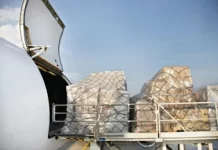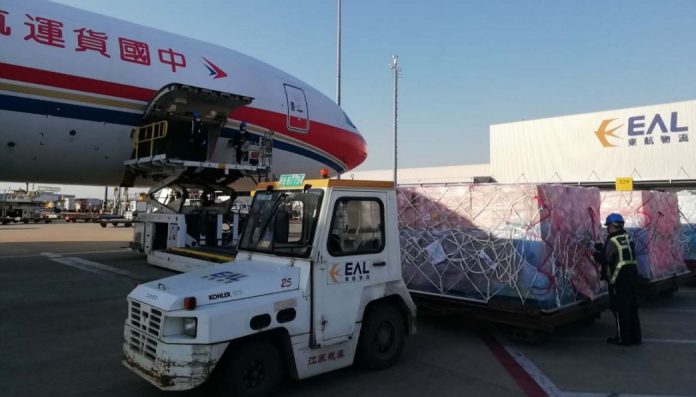As part of its effort to ensure the containment of the spread of COVID-19, The International Air Transport Association (IATA) and its members continue to support governments by enabling air cargo.
Since the crisis began, air cargo has been a vital partner in delivering much-needed medicines, medical equipment (including spare parts/repair components), and in keeping global supply chains functioning for the most time-sensitive materials. This has been done through dedicated cargo freighter operations, utilization of cargo capacity in passenger aircraft and with relief flights to affected areas.
Air cargo is also instrumental in transporting food and other products purchased online in support of quarantine and social distancing policies implemented by states.
For instance, in an ongoing effort to contain the spread of the Covid-19 coronavirus and provide aid to afflicted communities across the globe, the Jack Ma Foundation and Alibaba Foundation on Monday committed to donating 100,000 medical masks, 20,000 test kits and 1,000 protective suits to each of the 54 nations on the African continent. This is after he made announced he will be donating 500,000 coronavirus test kit and a million face masks to the U.S (this is the only flight from China authorised by the Trump administration to land on the shores of U.S. since the travel ban was put in place last week)
The dramatic travel restrictions and collapse of passenger demand have severely limited cargo capacity. IATA calls on governments to take urgent measures to ensure that air cargo will be available to support the global fight against COVID-19.
“Over 185,000 passenger flights have been cancelled since the end of January in response to government travel restrictions. With this, vital cargo capacity has disappeared when it is most urgently needed in the fight against COVID-19. The world’s fleet of freighter aircraft has been mobilized to make up this capacity shortfall. Governments must take urgent measures to ensure that vital supply lines remain open, efficient and effective,” said Alexandre de Juniac, IATA’s Director General and CEO.
Governments must see air cargo as an essential part of the fight against COVID-19 and take the following actions:
- Exclude air cargo operations from any COVID-19-related travel restrictions, to ensure life-saving medical products can be transported without disruptions
- Ensure that standardized measures are in place so that air cargo can continue to move around the world with minimal disruptions
- Exempt air cargo crew members, who do not interact with the public, from 14-day quarantine requirements
- Support temporary traffic rights for cargo operations where restrictions may apply
- Remove economic impediments, such as overfly charges, parking fees, and slot restrictions to support air cargo operations during these unprecedented times
“Air cargo carriers are working closely with governments and health organizations around the world to safeguard public health while also keeping the global economy moving. Today, as we fight a global health war against COVID-19, governments must take urgent action to facilitate air cargo. Keeping cargo flowing will save lives,” said de Juniac.













